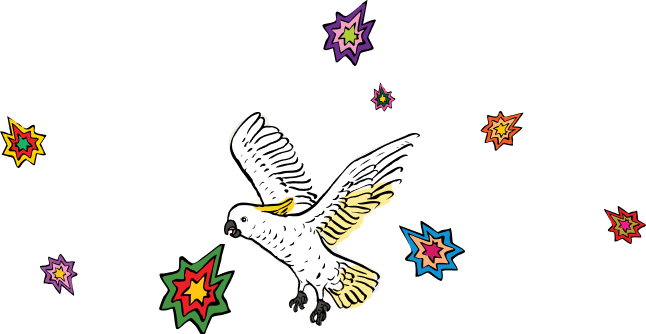Reviewed by: The Clothesline
Review by Daniel Tune |
16 March 2024
MUSIC/Spoken Word – US, Australian Premiere
Lydia Lunch and Joseph Keckler: “Tales of Lust and Madness”
Garage International at Adelaide Town Hall, Thur 14 Mar, 2024
A fascinating and bizzare vibe-combo, Lydia Lunch and Joseph Keckler’s double header presentation of their weird New York nonsense was in equal parts transfixing and confounding.
Keckler, a trained opera singer, devotes most of his set and his unbelievable talent to shaggy dog stories set to incredibly dramatic music. These stories, about such topics as having sex with a ghost and buying a lot of vinyl clothing on a whim, are audacious in their flippancy, especially when contrasted with their operatic delivery. There seems to be the germ of some kind of satire in this juxtaposition, or perhaps a radical artistic recalibration of our relationship to narrative. But the crux of the point (perhaps the point is that there isn’t one) never really materialises. Still, it’s very funny. Just as the joke starts to wear thin though, Keckler moves into a series of extremely poignant ballads, closing out with some of the most powerfully conveyed emotion I have experienced at the Fringe this year. The disjunction of the singer’s two modes only increased my intrigue, but the set finished before I could figure out why.
Lydia Lunch’s section, an “endless eulogy” of spoken word poetry, was stranger still. There’s a quote by fellow punk-adjacent professional weirdo John Waters that goes along the lines of “no one should be a radical over the age of sixty”. It’s a quote that I theoretically disagree with, but Lunch’s performance, at pains to piss off an audience of adoring fans (I suspect unsuccessfully), made it make a certain amount of sense to me. I’d still side with Lunch over Waters though – just because someone “shouldn’t” do something doesn’t mean they actually shouldn’t, if you follow me. The spectacle of the aging No Waver no more content with the world and no less self-consciously edgy than she was in the eighties, long after the death of the scene she represented, is a frankly inspiring lesson with a strange kind of artistic integrity. Starting at an evocation of apocalypse and ending on a series of mangled references to various crime shows, the show is at times profound, at times embarassing, but always interesting from at least one angle or another. In an artistic climate that prizes comfort and accessibility above risk and provocation, there’s something beautiful about an artist who sticks to, indeed doubles down on their aesthetic principles in the way Lunch has done.
If either of the shows amount to more than posturing is hard to say, but what postures to take!




